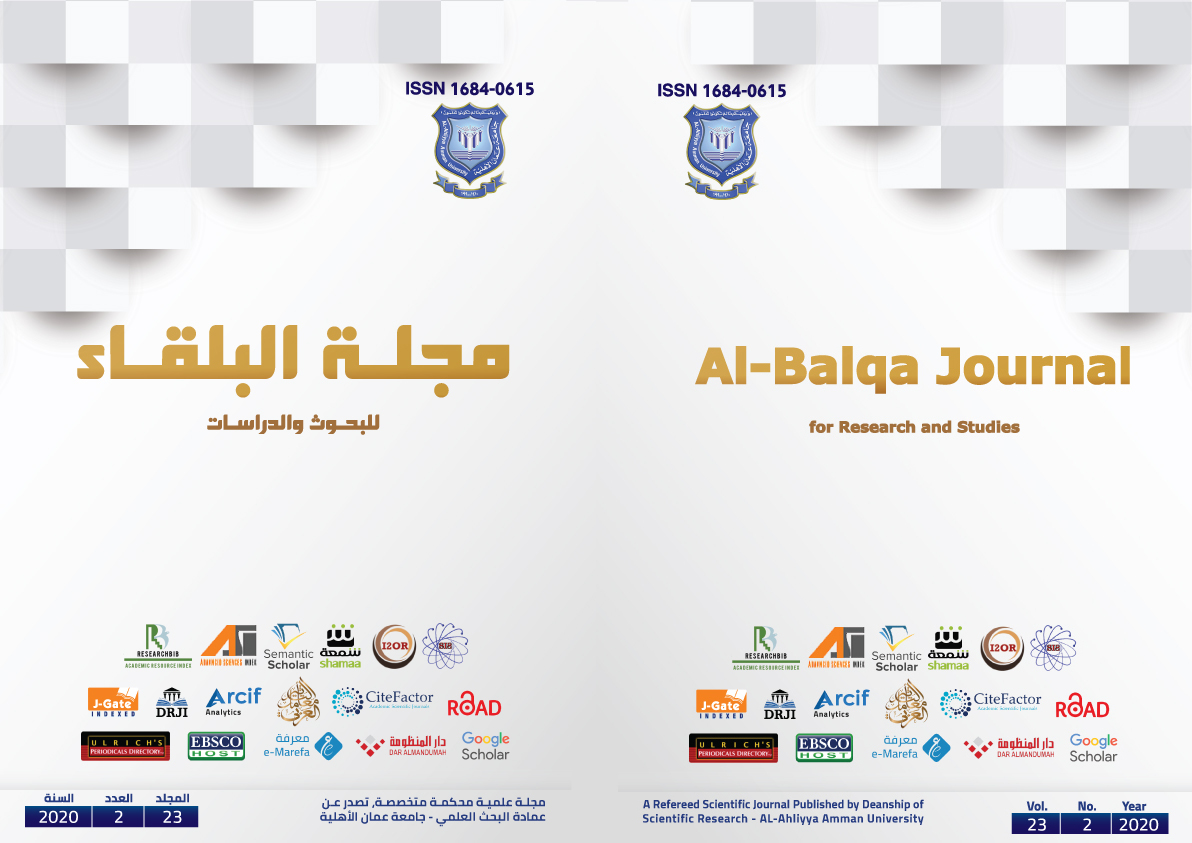Al-Balqa Journal for Research and Studies البلقاء للبحوث والدراسات

Abstract
In Sonata for Jerusalem Ghost (SJG) (2009), Waciny Laredj, the Algerian-French novelist, engages with one of the most, if not the most, pivotal cases that have dominated the Arab political and socio- cultural scene for more than seventy decades, namely: the Israeli occupation of Palestine. Laredj utilizes an interdisciplinary approach informed by postmodern, psychoanalytical, postcolonial, and ecological rhetoric to deal with issues pertaining to occupation, displacement, the nostalgia for the homeland, the problem of hybrid identity, and others. Elemental ecology operates as a discursive proxy that links up the different disciplines in SJG. Exploring the dynamics of this operation, I will underscore the role that Laredjs utilization of interdisciplinary plays in articulating a feasible — or a potentially blurred — concept of resistance in a Palestinian context. The different disciplines that Laredj utilizes are anchored on postmodern predisposition and ethics. Accordingly, I will explore if (and how) such ethics renders the potential of ‘resistance ‘in the novel captive to possibilities of freedom and justice defined by a postmodern and global/Western rhetoric rather than by political ethics particularly germane to the Palestinian condition. In the process, I will show if SJG is an “aestheticized politics that ultimately generates no more than a sense of “artistic gratification consummated in the slogan “l’art pour l’art”.
Recommended Citation
Ibrahim, Hanan
(2017)
"The Aesthetics of Jerusalem Butterflies and the Illusion of Resistance,"
Al-Balqa Journal for Research and Studies البلقاء للبحوث والدراسات: Vol. 20:
Iss.
1, Article 8.
Available at:
https://digitalcommons.aaru.edu.jo/albalqa/vol20/iss1/8

